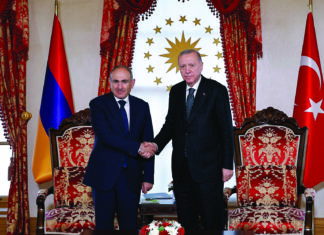The Biden administration has actively mediated efforts to normalize relations between Armenia and Azerbaijan, as well as Armenia and Turkey. These situations are closely linked, whether we like it or not. Outgoing President Joe Biden urged Azerbaijan’s President Ilham Aliyev and Armenia’s Prime Minister Nikol Pashinyan to finalize a peace agreement by year-end, likely aiming to boost his reputation as a mediator and dealmaker. If Harris would have won, the Democrats’ political course would likely have continued, but this prospect seems doubtful with Trump.
Aliyev probably disregarded Biden’s letter, as Azerbaijan is not keen on a peace treaty that would limit his ambitions and constrain his options. Unlike Azerbaijan, Armenia urgently needs to sign a peace agreement as quickly as possible.
Afterward, it is likely that the Armenian leadership will focus all resources on domestic political processes, such as organizing elections to legitimize the peace agreement and other painful concessions. These concessions may include renouncing elements of the Declaration of Independence, the symbolic image of Mount Ararat on the Armenian coat of arms, and other national and historical values.
Realistically, two scenarios arise concerning the peace process.
Delaying the Peace Agreement
The Trump administration may hesitate to quickly finalize the agreement, as doing so would imply crediting the Biden administration — or at least sharing that credit with the Democrats. Alternatively, Trump could continue negotiations and delay the signing to claim the credit himself, especially as he seeks successful peace narratives and success stories for his record. This delay would also align with Baku’s interests, enabling Azerbaijan to press Armenia for more while experiencing less external pressure, especially from the US.








